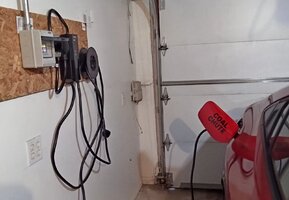It depends on how you define 'less reliable'.
All components have to ability to fail.
Therefore the more complex the vehicle the 'less reliable' it will be.
This applies when comparing a basic ICE vehicle with one that has all of the latest safety and electronic gizmo's fitted to them which will, due to the added complexity, be 'less reliable'. Due to the simplicity of an electric motor it is, therefore, likely to have less failures than its ICE stablemate.
It would also imply that a full electric vehicle will be more reliable that an ICE one as there are less components to go wrong.
What you also need to take into consideration is how often components fail which is something I've not seen manufactures publish. Without that information it is impossible to draw any conclusions.
Bottom line is we need hard facts not conjecture and second had information.
Fires in EV's make good press and in many cases the article may not have been written by a journalist who has any expertise or knowledge of the subject that they have been tasked by their editor to write about.
Early EV did have issues with batteries but the current crop has
safety features built in to prevent thermal runaway. It should also be recognised that the majority of battery fires are in electric scooters and bicycles and that ICE powered vehicle also catch fire.
A study by the Swedish Civil Contingencies Agency also revealed that petrol and diesel cars caught fire 19 times more often than EVs.
I can only speak as I find and (so far) my hybrid has been totally reliable, will give 45 miles on a charge in the summer (drops to around 30 in the winter, something manufacturers fail to mention

) and is currently averaging 141 m.p.g. In the two years I've had it I've saved around £920 ($1154) in fuel.
Would I go back to a purely ICE powered vehicle? No way.

 ONE manufacturer's product is so reliable as to move an entire category's durability against the "more complicated=more failures argument....
ONE manufacturer's product is so reliable as to move an entire category's durability against the "more complicated=more failures argument....

